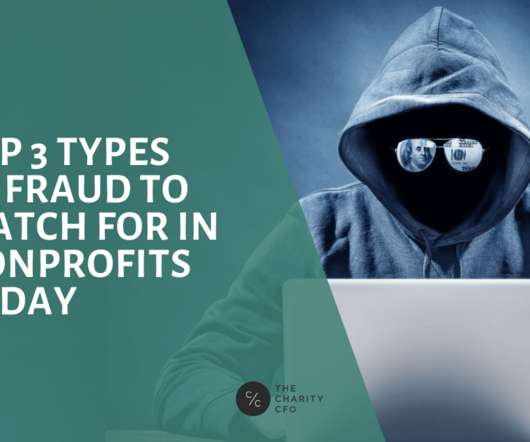3 Types of Nonprofit Fraud to Watch Out for Today
The Charity CFO
MARCH 24, 2022
Feeding Our Future received funding from the United States Department of Agriculture through the Child and Adult Care Food Program and the Summer Food Service Program—money intended to provide meals to children. The education first department reported Inconsistencies to the USDA in 2020. How was this fraud uncovered?













Let's personalize your content